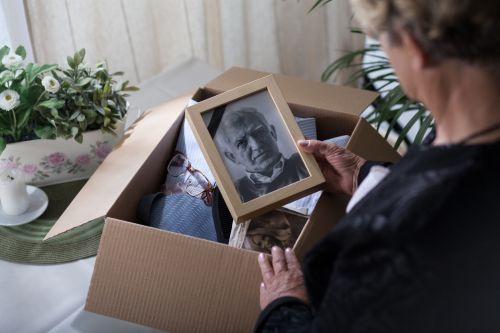Menu



When a loved one passes away, managing the details of their estate can feel overwhelming. If that person created a trust, you might assume everything is locked in and unchangeable. But can a spouse change a trust after death? It depends on the type of trust and the language in the trust document.
When married couples in Ohio plan their estates, they often choose between creating a joint trust or setting up separate trusts. This choice has a major impact on what happens after one spouse dies.
In a separate trust, each spouse creates their own independent trust, and each trust is controlled solely by the person who established it. That means when one spouse passes away, their trust becomes irrevocable. The surviving spouse has no legal authority to change it, even if they are a trustee or beneficiary. Only the trustmaker can amend a trust, and once they’ve passed, that power ends. At best, the surviving spouse can manage the trust as trustee if named, but they must follow the original instructions as written.
A joint trust is a different arrangement. Many couples in Ohio use joint trusts to simplify estate planning and asset management during life.
With a joint trust, both spouses are co-grantors and often co-trustees, so they share control while alive. After one spouse dies, whether the surviving spouse can still make changes depends on how the trust was written. In many cases, the deceased spouse’s share becomes irrevocable, while the surviving spouse retains control only over their portion. In other cases, the trust may stay revocable until both spouses pass away, leaving the surviving spouse with broader authority to amend or revoke.
This difference can be confusing and lead to disputes if the trust document isn’t clear. Families often assume a surviving spouse has full control, but that’s not always true. Whether the trust is joint or separate, the key is in the language. A well-drafted trust will spell out exactly when it becomes irrevocable and how much authority the surviving spouse has to make changes.
In a joint trust—common for married couples—both spouses are typically co-trustees and co-trustmakers. That means while both are alive, either one can make changes (only with the other’s consent). But when one spouse dies, the other becomes the sole trustee and no longer shares decision-making power.
Now here’s where it gets tricky. If the trust says that it becomes irrevocable upon the first death, then the surviving spouse—even as trustee—can’t change the terms. They’re required to administer the trust according to its original instructions.
However, the trust language may grant the surviving spouse the ability to change the trust, or at least parts of it. The surviving spouse may have the power to make any changes to the trust, including the power to change beneficiaries. The trust may give the surviving spouse the power to amend the trust, but only to change the successor trustees of the trust. The trust may give the surviving spouse the power to amend the trust with respect to the assets that had been contributed to the trust by the surviving spouse.
Even when a surviving spouse cannot amend a trust after their partner’s death, they may still have significant influence through a Power of Appointment. This tool allows someone to decide how certain trust assets will be distributed, typically at their own death. It’s not the same as amending a trust, but it can function like a built-in option for flexibility.
A General Power of Appointment gives the surviving spouse broad authority. They can choose to distribute the assets to virtually anyone—family, friends, creditors, or even their own estate.
A Limited Power of Appointment restricts the surviving spouse’s choices to a specific class of beneficiaries. For example, the trust might say the spouse can direct assets only to the decedent’s children, grandchildren, or approved charities. This narrower scope protects the original intent of the trustmaker while still giving the surviving spouse some control.
Whether general or limited, powers of appointment must be explicitly granted in the trust document. If the language isn’t there, the surviving spouse doesn’t automatically have this authority.
For families, these powers can be both a blessing and a source of tension. They allow flexibility and can help adapt the estate plan to changing circumstances, but they also create room for disagreements among beneficiaries. Anyone considering exercising a power of appointment should consult an estate planning attorney to avoid disputes and ensure the authority is used correctly.
Trying to change a trust after your spouse has passed is not something you should attempt on your own. The consequences can be serious, especially if the trust is partially or fully irrevocable. Even small actions—like shifting money between accounts or changing the title on a property—can violate the terms of the trust if you’re not careful.
At Legacy Law Group, Ltd., we help Ohio families understand what they can and cannot do with trust administration. If you're the surviving spouse, we’ll walk you through the trust document and Ohio law so you don’t run into trouble.
© 2025 Legacy Law Group, Ltd.
| View Our Disclaimer | Privacy Policy